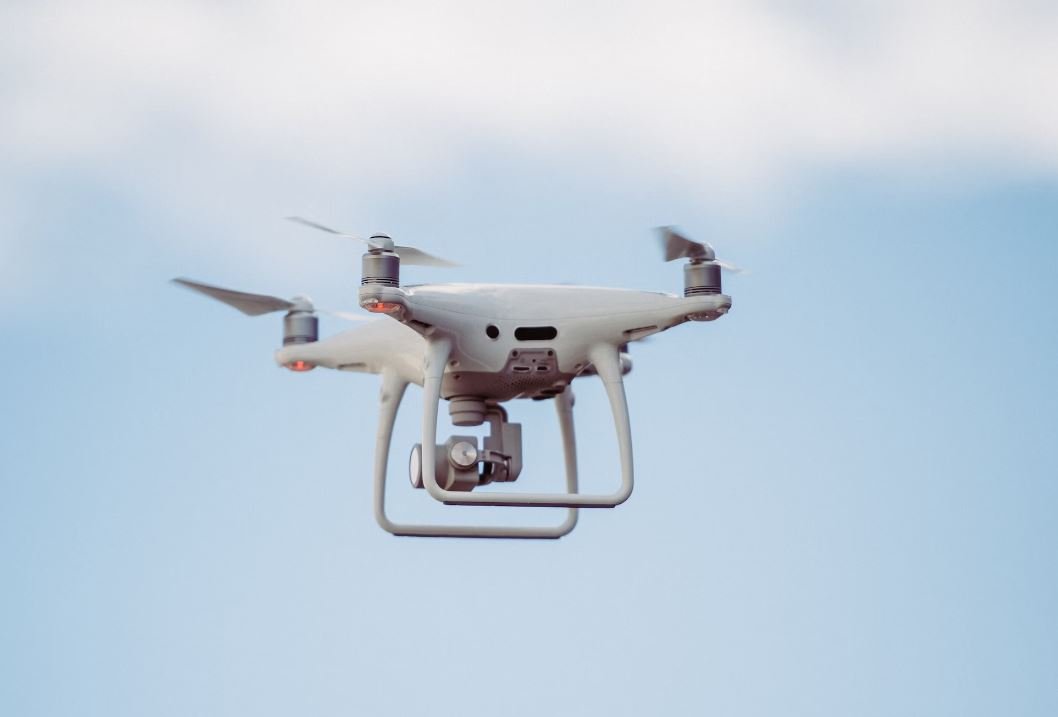AI Offline Apps
AI technology has revolutionized the way we interact with our devices, from virtual assistants like Siri to personalized recommendations on streaming platforms. As AI continues to advance, developers are now focusing on creating offline AI apps that can function without an internet connection. These AI offline apps offer numerous benefits, from increased privacy to improved performance. In this article, we will explore the key advantages and capabilities of AI offline apps.
Key Takeaways:
- AI offline apps provide users with increased privacy and data security.
- Offline AI apps allow for seamless use even in areas with limited or no internet connectivity.
- These apps have faster response times and improved performance due to reduced dependence on server communication.
AI offline apps are designed to work without requiring a constant internet connection. This allows users to enjoy the benefits of AI technology while maintaining their privacy and data security. Without relying on the cloud or external servers, **personal data remains stored locally** on the device, reducing the risk of potential security breaches or data leaks.
One interesting aspect of offline AI apps is their ability to function seamlessly in areas with limited or no internet connectivity. With an offline app, users can still utilize AI-powered features, such as voice recognition and natural language processing, even when they are not connected to the internet. This can be particularly useful for users who frequently travel or live in remote areas where internet access may be unreliable or unavailable.
Moreover, offline AI apps offer faster response times and improved performance compared to their online counterparts. **By processing data locally and not relying on server communication**, AI-powered tasks can be executed more quickly, resulting in a smoother user experience. This is particularly beneficial for tasks that require real-time responsiveness, such as speech recognition or object detection.
Enhancing User Experience with Offline AI Apps
The following table demonstrates the advantages of AI offline apps in comparison to online AI apps:
| Advantages of AI Offline Apps | Advantages of AI Online Apps |
|---|---|
| Increased privacy and data security | Access to cloud-based data and services |
| Functionality without internet connectivity | Ability to learn and improve through continuous online updates |
| Faster response times and improved performance | Ability to process large datasets and complex calculations |
Offline AI apps can greatly enhance user experience through increased privacy and improved performance. However, it is important to note that online AI apps offer their own advantages. Since online apps can access cloud-based data and services, they have the ability to learn and improve through continuous online updates, ensuring they stay up to date with the latest information and trends.
Maximizing AI Capabilities: Online and Offline
Both online and offline AI apps have their strengths and weaknesses. By understanding these nuances, developers can create AI-powered applications that take advantage of the benefits offered by both approaches. For instance, developers can implement a hybrid model where AI functionalities are partially implemented offline, ensuring a seamless experience even in areas with limited connectivity, while still utilizing cloud-based resources when available.
To summarize, AI offline apps provide users with increased privacy, seamless functionality in areas with limited internet access, and improved performance through reduced dependence on server communication. While online AI apps offer the ability to access cloud-based data and services and continuous updates, offline apps are becoming increasingly popular as they overcome the connectivity limitations and offer a more secure and efficient user experience.

Common Misconceptions
Misconception: AI Offline Apps are not as advanced as online AI
People often believe that AI offline apps are not as advanced or capable as online AI. However, this is a common misconception. AI offline apps are designed to harness the power of artificial intelligence and machine learning algorithms, just like their online counterparts. They can perform complex tasks, make intelligent decisions, and learn from data, all without a constant internet connection.
- AI offline apps use pre-trained models to perform various tasks.
- They can process and analyze data locally on the device, ensuring privacy and security.
- AI offline apps can adapt and improve their performance over time by continuously learning.
Misconception: AI Offline Apps cannot handle large datasets
Another misconception is that AI offline apps cannot effectively handle large datasets. While it is true that processing vast amounts of data can be resource-intensive, AI offline apps have advanced algorithms and optimizations in place to handle such scenarios.
- AI offline apps can leverage techniques like data compression to handle large datasets efficiently.
- They can store and retrieve data in an optimized manner, ensuring smooth performance.
- By utilizing efficient algorithms, AI offline apps can process large datasets without compromising the user experience.
Misconception: AI Offline Apps cannot learn and improve without internet
Many believe that AI offline apps need a constant internet connection to learn and improve. However, this is not true. AI offline apps can utilize techniques like transfer learning and on-device learning to continuously learn and improve their performance, even without an internet connection.
- AI offline apps can learn from user interactions and adapt their behavior accordingly.
- They can train on new data and update their models locally on the device, without relying on the internet.
- By employing intelligent algorithms, AI offline apps can continuously improve their performance over time.
Misconception: AI Offline Apps do not provide real-time responses
People often assume that AI offline apps cannot provide real-time responses due to limited computing capabilities. However, AI offline apps are designed to deliver quick and accurate responses, even without an internet connection.
- AI offline apps utilize optimized algorithms to process data and generate responses quickly.
- They can leverage hardware acceleration on modern devices to enhance their performance.
- By reducing the computational complexities, AI offline apps can provide real-time responses based on the data available locally.
Misconception: AI Offline Apps are not secure
Lastly, there is a misconception that AI offline apps are not as secure as online AI solutions. However, AI offline apps can actually offer enhanced privacy and security since they process data locally on the device without the need for constant internet connectivity.
- AI offline apps do not rely on cloud servers for processing, reducing the exposure of sensitive data.
- They can implement encryption techniques to secure data stored on the device.
- By keeping data and computations within the app, AI offline apps minimize the risk of data breaches and unauthorized access.

AI in Healthcare
In this table, we present the estimated global market size for AI in healthcare from 2019 to 2025. The exponential growth of AI technologies in the healthcare industry highlights its potential for revolutionizing patient care and improving health outcomes.
| Year | Market Size (in billions USD) |
|---|---|
| 2019 | 1.3 |
| 2020 | 2.0 |
| 2021 | 2.9 |
| 2022 | 4.4 |
| 2023 | 6.7 |
| 2024 | 9.9 |
| 2025 | 14.7 |
AI Chatbot Adoption
Chatbots powered by AI are being widely adopted across various industries. The following table represents the percentage of companies using AI chatbots for customer interaction in different sectors.
| Sector | Percentage of Companies Using AI Chatbots |
|---|---|
| Retail | 62% |
| Banking | 46% |
| Telecommunications | 38% |
| Healthcare | 33% |
| Travel and Hospitality | 28% |
AI in Education
The integration of AI in education has the potential to transform traditional teaching methods. The table below showcases the number of students currently benefiting from AI-powered educational tools.
| Region | Number of Students Using AI Tools |
|---|---|
| North America | 5 million |
| Europe | 3.2 million |
| Asia-Pacific | 8.9 million |
| Latin America | 1.7 million |
| Middle East and Africa | 1.1 million |
AI and Cybersecurity
As AI capabilities continue to grow, the demand for AI-powered cybersecurity solutions is on the rise. This table provides an overview of the global spending on AI cybersecurity solutions in the next five years.
| Year | AI Cybersecurity Spending (in billions USD) |
|---|---|
| 2022 | 6.4 |
| 2023 | 7.9 |
| 2024 | 9.5 |
| 2025 | 12.1 |
| 2026 | 15.0 |
AI in Automotive Industry
The automotive industry is adopting AI technologies to enhance safety features and develop autonomous vehicles. This table presents the number of AI-enabled vehicles projected to be on the road by 2025.
| Region | Number of AI-enabled Vehicles |
|---|---|
| North America | 9.2 million |
| Europe | 7.1 million |
| Asia-Pacific | 16.3 million |
| Latin America | 2.6 million |
| Middle East and Africa | 1.8 million |
AI for Financial Services
AI is transforming the financial sector, improving efficiency and customer experiences. The table below highlights the annual cost savings achieved by using AI algorithms for fraud detection.
| Year | Cost Savings (in billions USD) |
|---|---|
| 2019 | 5.1 |
| 2020 | 7.3 |
| 2021 | 9.6 |
| 2022 | 12.2 |
| 2023 | 15.1 |
AI in Agriculture
The adoption of AI-driven smart farming techniques is revolutionizing the agriculture industry. The table presents the percentage increase in crop yield achieved by utilizing AI-based agricultural technologies.
| Crop | Percentage Increase in Yield |
|---|---|
| Corn | 11% |
| Rice | 15% |
| Wheat | 9% |
| Soybeans | 7% |
| Potatoes | 13% |
AI and Job Displacement
While AI creates new job opportunities, it also leads to some job displacement. The following table showcases the projected number of jobs displaced by AI technologies by 2030.
| Industry | Number of Jobs Displaced (in millions) |
|---|---|
| Manufacturing | 12.9 |
| Retail | 7.5 |
| Transportation | 4.3 |
| Construction | 2.8 |
| Customer Service | 1.6 |
Conclusion
The rapid growth of AI technology has significantly impacted various industries. From healthcare and education to finance and agriculture, AI’s influence is transforming processes, improving productivity, and enhancing experiences. As AI continues to evolve, its offline applications are poised to shape a future that is driven by advanced technologies. However, it is essential to carefully consider the ramifications of AI, ensuring that both job creation and workforce adaptation are prioritized and adequately addressed.
Frequently Asked Questions
What are AI offline apps?
AI offline apps are applications that utilize artificial intelligence (AI) algorithms and capabilities to perform tasks locally on a device without requiring an internet connection. These apps are designed to leverage on-device processing power for AI-related tasks such as natural language processing, machine learning, and computer vision.
How do AI offline apps work?
AI offline apps work by embedding AI models and algorithms within the application itself. They utilize the processing power of the device to perform AI-related computations locally, rather than relying on cloud-based servers. This allows the app to function even without an internet connection, providing users with AI functionalities offline.
What are the advantages of using AI offline apps?
There are several advantages of using AI offline apps:
- Ability to perform AI-related tasks without an internet connection
- Enhanced privacy and data security as data stays on the device
- Reduced latency as processing happens locally
- Faster response times and improved user experience
- Reduced dependency on cloud services
What types of tasks can AI offline apps perform?
AI offline apps can perform a variety of tasks including:
- Natural language processing for text analysis and understanding
- Speech recognition and synthesis
- Real-time object detection and image recognition
- Recommendation systems based on user preferences
- Anomaly detection in data streams
Can AI offline apps be used on all devices?
AI offline apps can be used on devices that meet the minimum hardware requirements for running AI algorithms locally. However, the availability of AI offline apps might vary depending on the operating system and the specific hardware capabilities of the device. It is important to check the compatibility requirements of the app before installation.
Do AI offline apps require regular updates?
AI offline apps may require updates periodically to improve the performance and accuracy of the AI models. These updates can include bug fixes, feature enhancements, and new AI algorithms. It is recommended to keep the AI offline apps updated to ensure the best user experience and to benefit from the latest advancements in AI technology.
Are AI offline apps free to use?
The availability and pricing of AI offline apps can vary depending on the specific app and its developer. While some AI offline apps might be available for free, others may require a one-time purchase or have a subscription-based pricing model. It is important to check the pricing details of the app before downloading or using it.
Can AI offline apps work alongside online AI services?
Yes, AI offline apps can work alongside online AI services. Developers can design apps to seamlessly transition from offline AI processing to online AI services when an internet connection is available. This hybrid approach allows apps to leverage the benefits of local processing without sacrificing the additional capabilities provided by cloud-based AI services.
Are AI offline apps as accurate as cloud-based AI services?
AI offline apps strive to achieve a similar level of accuracy as cloud-based AI services. However, due to the limitations of on-device processing power and storage, the accuracy of AI models in offline apps may be slightly lower compared to their cloud-based counterparts. Nonetheless, advancements in AI algorithms and hardware are constantly improving the accuracy of offline AI models.
Where can I find AI offline apps?
AI offline apps can be found on various app marketplaces such as Google Play Store and Apple App Store. These marketplaces provide a wide range of AI apps that can be downloaded and installed on compatible devices. Additionally, you can also explore AI developer communities and websites to discover specific AI offline apps tailored to your needs.





